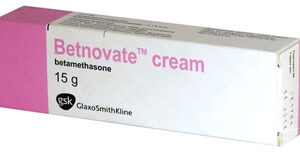Aldara Medication Overview
Aldara, with the generic name imiquimod, is a topical medication primarily used for the treatment of certain skin conditions such as actinic keratosis (due to excessive sun exposure), superficial basal cell carcinoma, and external genital and perianal warts in adults. It is a member of a class of drugs known as immune response modifiers and functions by stimulating the body’s immune system to fight the affected skin cells.
Pharmacological Properties
The active component, imiquimod, is believed to act as an agonist of toll-like receptor 7 (TLR7) found on immune cells. This interaction promotes the secretion of cytokines, particularly interferon-alpha, and other inflammatory mediators that lead to an antiviral, antitumor, and immunomodulatory response. Aldara does not directly destroy viruses or cancer cells but stimulates the body’s own defenses to do so.
Indications and Usage
Aldara cream is indicated for three specific conditions: actinic keratosis on the face or scalp, superficial basal cell carcinoma when surgery is not an appropriate treatment, and external genital and perianal warts in patients older than 12 years. It is only intended for topical application and should not be used on internal warts, in the vagina, or inside the anus.
Dosage and Administration
The dosage of Aldara depends on the condition being treated. For actinic keratosis, it is usually applied twice a week for a full 16 weeks. For superficial basal cell carcinoma, the typical regimen involves application five times per week for six weeks. When treating external genital warts, Aldara is applied three times a week until wart clearance, up to a maximum of 16 weeks. The cream should be applied just before bedtime and left on the skin for approximately 8 hours before washing off with soap and water.
Application Instructions
Patients should wash their hands and the treatment area with mild soap and water before application. A thin layer of Aldara cream should be applied to the affected area and rubbed in until the cream is no longer visible. Following overnight application, the area should be washed with soap and water. Non-occlusive dressings can be used if directed by a healthcare provider.
Storage and Handling
Aldara cream should be stored at room temperature, between 20°C to 25°C (68°F to 77°F). The medication should be kept away from direct sunlight and heat. Unused sachets should be stored in the original box. After opening a sachet, discard any remaining cream after the single-use application. Do not freeze the product.
Adverse Reactions
Local skin reactions are the most common side effects, which can include redness, swelling, erosion, itching, and pain at the application site. Flu-like systemic symptoms such as fever, fatigue, and muscle pain may also occur. Severe reactions such as facial swelling, severe skin reaction, and difficulty breathing may be signs of an allergic reaction, and immediate medical attention should be sought.
Drug Interactions
There are limited studies on drug interactions with Aldara. However, because of its mode of action and limited systemic absorption, significant drug interactions are unlikely. Always discuss concomitant medication use with your healthcare provider to rule out any potential interactions or modifications in therapy.
Use in Specific Populations
There is limited clinical data on the use of Aldara in pregnant women. It should be used during pregnancy only if the potential benefit justifies the potential risk to the fetus. Imiquimod cream should be used with caution in nursing mothers as it’s not known if imiquimod is secreted in human milk. The safety and effectiveness of Aldara have been established for use in pediatric patients for external genital and perianal warts in individuals 12 years of age and older, but it is not recommended for patients under 12.
Instructions for Missed Dose
If a dose of Aldara is missed, it should be applied as soon as remembered, continuing with the regular application schedule. However, if it is nearly time for the next dose, the missed dose should be skipped, and the regular dosing schedule should continue. Do not apply extra cream to make up for the missed dose.
Overdosage Handling
In the event of an Aldara overdose, the cream should be removed by washing the area with mild soap and water. Excessive exposure to the cream can exacerbate local skin reactions. Accidental oral ingestion should be treated with supportive measures. As Aldara is for topical use and it is used in controlled doses, systemic overdose is very unlikely.
Instructions for Discontinuation
If severe local skin reactions occur, it may be necessary to interrupt treatment with Aldara cream. Treatment can usually be resumed after the skin reaction has subsided. Always follow the healthcare provider’s instructions regarding discontinuing or resuming the cream.






Reviews
There are no reviews yet.